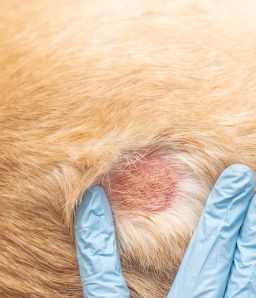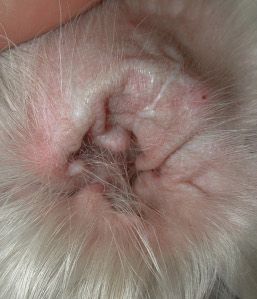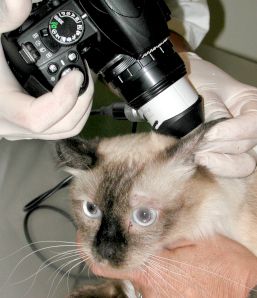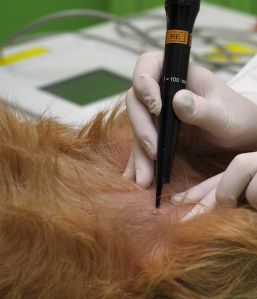For the clients
Allergology
Allergic diseases are on the rise in people and in our animals. The best known, particularly in dogs, are atopic dermatitis, flea bite hypersensitivity, and adverse reactions to food.
Diagnostic procedures and allergology tests needed to confirm the presence of allergic disease and to formulate desensitizing therapy (allergen-specific immunotherapy) are performed at the Studio Dermatologico Veterinario.
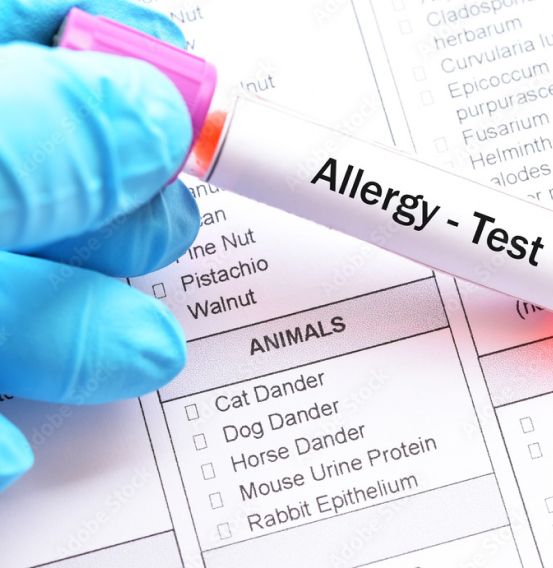
Canine atopic dermatitis and feline atopic syndrome
Canine atopic dermatitis and feline atopic syndrome are the terms used in veterinary medicine to define allergy to inhaled or percutaneously penetrating environmental substances. These substances, called allergens, are represented by weeds or tree pollens, house dust, microscopic mites, molds, or animal and human dander. Once penetrated into the skin of an allergic dog or cat, the allergens are captured by antibodies (allergen-specific IgE) and trigger an inflammatory reaction characterized by erythema and severe itching.
Adverse reactions to food
Dogs and cats, like people, can develop intolerances and allergic reactions to dietary components, and the clinical manifestations can overlap completely with those of atopic dermatitis.
Unfortunately, there is currently no blood test that allows us to diagnose food allergy with sufficient reliability. At present, the diagnosis is made by feeding the dog or cat for a period of 6-8 weeks a selected food (idolized protein or single-protein) and observing whether the itching disappears during the trial. If this occurs, to determine with certainty if the animal is allergic, the usual diet should be reintroduced and the relapse of itching observed.
Frequently asked questions
Diagnosis of allergic dermatitis is based on history, correct identification of clinical signs, and exclusion of other diseases that cause itching.
Therefore, the first step is a thorough clinical examination that includes the necessary tests to rule out other differential diagnoses, particularly ectoparasites.
Like people, animals can develop allergic or intolerance reactions to one or more components of their diet. The most common cause of food allergy is the ingestion of animal protein (beef, chicken, fish, milk, eggs) or plant protein (soy, wheat, corn).
Environmental allergens induce the production of antibodies (allergen-specific IgE) in allergic dogs and cats. Once the environmental allergens to which the animal overreacts have been identified by serological examination, a “vaccine” (allergen-specific immunotherapy) can be prepared to reduce the patient’s hypersensitivity (hyposensitization).
It is important to remember that serologic testing should not be performed if the dog is taking or has recently taken steroid, antihistamine, or cyclosporine therapies.
Response is individual, with most subjects showing improvement 3-6 months after starting treatment. If clinical improvement (reduction of itching and medication to control it) is observed, it is best to continue with maintenance for a period of two to three years. In a good proportion of subjects after this period it is possible to discontinue hyposensitization and no further therapy is needed.
